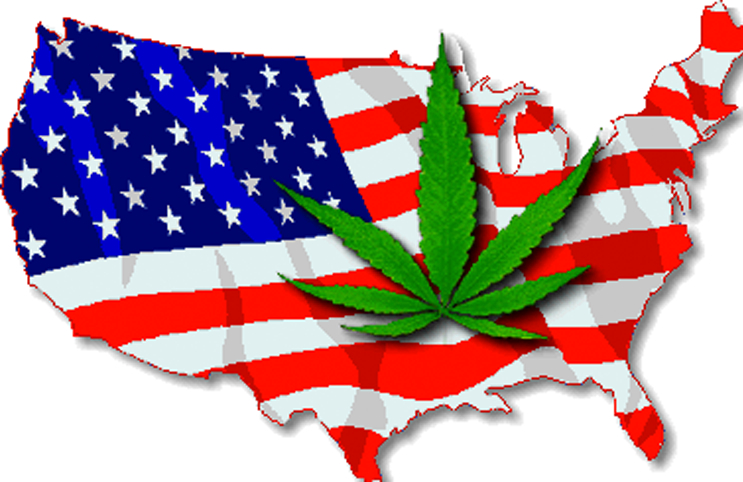Poll discovers that majority of residents in legal cannabis states are supportive of federal legalization
Individuals who reside in cannabis-friendly locations across the United States feel confident that adult-use policies have been largely successful, according to a recent poll by YouGov.
“A new YouGov study finds that in many states where recreational [cannabis] is legal, a plurality believes the legislation has been more of a success than a failure overall,” reads a Tweet from the global data company.
With the North American legal cannabis market being valued at USD $12.9 billion in 2019, it’s clear that the success of various cannabis legalization initiatives has strengthened the economy. Plus, in cannabis-friendly U.S. states that have given back to disproportionately impacted communities – including high-impact U.S. states like California, Illinois and Michigan that offer social equity programs and/or cannabis conviction expungement – the side effects of legalization have been progressively positive.
Now, it appears that people’s perceptions on the green plant are also evolving; coinciding with the evolution of its legal status. Based on YouGov’s study results, most surveyed people – of whom came from eight different U.S. states – believe that recreational cannabis has been beneficial for state residents.
Even the people who reside in Maine – a plurality vote of more than two-to-one – feel confident about adult-use cannabis legalization; despite having legalized the plant for recreational purposes back in 2016, Maine lawmakers have been slow in launching any adult-use dispensaries just yet.
YouGov study on legal cannabis supporters: Legislation considered a victory by many
Carried out from April 17-20, YouGov’s survey on legal cannabis supporters and non-supporters provided a state-level sample size for most U.S. states with adult-use laws enacted. However, a reportable sample could not be offered for Alaska or Vermont; despite the fact both U.S. states have introduced legalization laws.
The question asked to over 32,000 people by YouGov analysts read as follows: “In the states that have decided to allow recreational [cannabis] use, do you think the legislation has been a success or a failure?”
Respondents were offered five different answer choices:
- “Success only”
- “More of a success than a failure”
- “More of a failure than a success”
- “Failure only”
- “Don’t know.”
The percentages of YouGov’s cannabis poll respondents who reside in cannabis-friendly states and felt that legalization was “more of a success than a failure” are listed alphabetically below:
- California (59-20 percent)
- Colorado (71-17 percent)
- Illinois (59-17 percent)
- Maine (47-20 percent)
- Massachusetts (67-15 percent)
- Michigan (56-20 percent)
- Nevada (64-17 percent)
- Oregon (69-20 percent)
- Washington (65-18 percent)
Colorado was among the first U.S. states to legalize recreational cannabis in 2012. Interestingly, just a quarter of YouGov’s Coloradoan respondents (26 percent) believed that the system was a “success only”, while an additional 46 percent said that it was “more of a failure than a success.”
YouGov has conducted a range of cannabis-focused surveys recently
Cannabis industry analysts, consumers, producers, retailers and investors have been gleaning some fascinating insights into the legal market as of late… thanks to YouGov. For example, a YouGov cannabis poll that was published in March revealed how a significant portion of surveyed Americans supported the idea of medical cannabis dispensaries being “essential services” throughout the COVID-19 disaster.
Then, on May 21, YouGov’s most recently-conducted cannabis poll asked the question: “In states where cannabis is legal, what should be the legal age for when a person can legally buy and use cannabis?” Three percent of respondents said the legal age should be younger than 18; 23 percent said age 18; three percent said age 19; four percent said age 20; 42 percent said age 21; 25 percent said older than 21.








